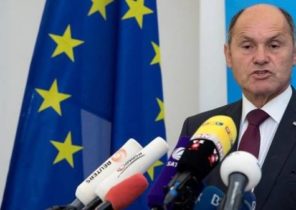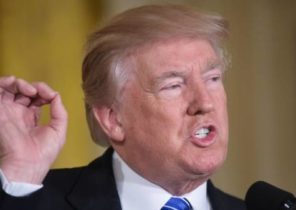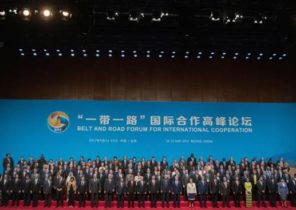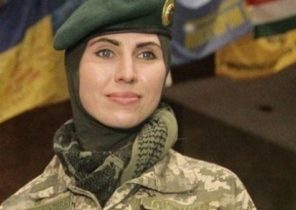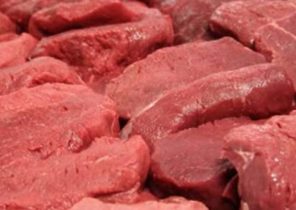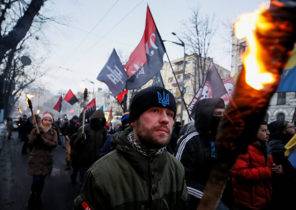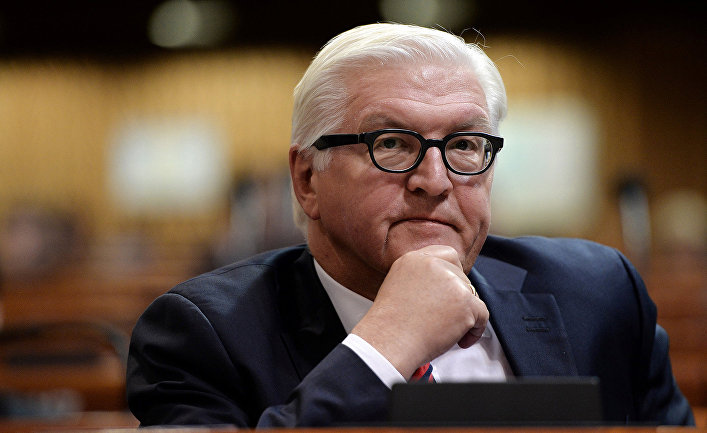
Sunday, February 12, the Federal Assembly, convened in Germany solely in order to elect the President, will name a new head of state. They with high probability will be the former foreign Minister Frank-Walter Steinmeier (Frank-Walter Steinmeier). He nominated a candidate from the three parties forming the ruling coalition: the Christian democratic Union (CDU), Christian social Union (CSU) and the Social democratic party of Germany (SPD).
The leaders of these parties for a long time unsuccessfully tried to agree on a single candidate. After a long debate, the party of Angela Merkel (Angela Merkel), the CDU agreed to support a member of the SPD, Steinmeier, who has long been an important figure on the German political scene.
For most people Steinmeier — the face of German diplomacy. Thus the presidency — is just one of the many posts that 60-year-old social Democrat has held in its nearly twenty-year political career. The head of the Federal Chancellery, the leader of the SPD faction in the Bundestag, the foreign Minister of Germany… Instead of the President of Germany Joachim gauck (Joachim Gauck) in the Palace Bellevue in Berlin is located is familiar to Germans a politician.
The most popular politician in Germany
Steinmeier possesses many of the qualities, which he may need for the execution of the duties of the President. Former Minister of foreign Affairs in the government of Angela Merkel (Angela Merkel) is respected among German politicians regardless of their party affiliation. He has great diplomatic experience, he is appreciated abroad, he repeatedly proved his ability to act effectively in crisis situations.
For several years, Steinmeier headed the ranking of the most popular politicians of Germany. According to the poll ARD-Deutschlandtrend, held in November 2016, the work of the foreign Minister was satisfied with 72 percent of respondents. The popularity of Steimeier likely to become for the CDU a strong argument in favor of the fact that after much hesitation to make a choice in favor of the candidate from the SPD.
The fact that Steinmeier could qualify for the highest political office in the country, many observers have assumed for a long time. Ultimately, during his extensive foreign travel — foreign Minister makes about 400 thousand km a year, he always behaved presidential. Besides, as a true diplomat, he was always aimed at finding compromise.
For example, after the escalation of the conflict in Eastern Ukraine Steinmeier has earned universal respect because of its persistent attempts to improve relations between Moscow and Kiev. While it helped somewhat defuse the situation — not least because of the care in the choice of expressions. Especially noteworthy is the fact that Steinmeier recently called the then candidate for US President Donald trump “preacher of hate” is a very uncharacteristic statement for a diplomat, whom many consider cautious bureaucrat.
Ally Schroeder
Steinmeier’s political career began in the team of Gerhard Schroeder (Gerhard Schröder). Steinmeier was headed by the personal Bureau of the shredder, when he held the post of Prime Minister of Lower Saxony. After the SPD in 1998 he received the opportunity to form the Federal government, schröder became Chancellor and Steinmeier moved with him to Berlin, where he was appointed state Secretary of government and later head of the Federal Chancellery.
In 2005, Steinmeier became foreign Minister of Germany in a coalition government of the CDU/CSU and the SPD, which was first headed by Angela Merkel. In 2007, he also assumed the position of Vice-Chancellor. And in 2008, Steinmeier was nominated as the candidate of the SPD for the post of the Federal Chancellor.
However, on the election to the Bundestag, the social Democrats suffered a crushing defeat, and many experts have explained the failure, including, and lack of proximity Steinmeier to the people. However, although the new President has never been “the guy” for ordinary Germans, he is well versed in the intricate game of international diplomacy thanks to his tenacity and broad Outlook.
In 2013, after the next elections to the Bundestag and re-formation of “Grand coalition” — the Alliance of the conservative CDU/CSU with SPDG — Steinmeier has once again topped the Ministry of foreign Affairs. Thus he became the most influential German diplomat in recent decades, having risen in one number with the architect of the reunification of Germany Hans-Dietrich Genscher (Hans-Dietrich Genscher).
Steinmeier was born on 5 January 1956 in Detmold in the Federal state of North Rhine-Westphalia. He comes from a working class family. Married to the ALJ Budenbender Elke (Elke Büdenbender), the couple has an adult daughter-a student. Personal life married couple appeared in the media spotlight in 2010.
Steinmeier, who at the time was the acting Chairman of the SPD faction in the Bundestag, became a donor for his wife who needed a kidney transplant surgery. To do this he had to move away from political Affairs. His act he has earned the deep respect of the public.
“Sign of permanence in the age of anxiety”
Compliments to Frank-Walter Steinmeier and sounds from the CSU — the “fraternal” party, the CDU. The Deputy Prime Minister of Bavaria Ilse Aigner (Ilse Aigner) called Steinmeier worthy candidate. A MEP of the CSU Manfred Weber (Manfred Weber) expects it to sequence: according to Weber, Germany needs a strong leader, and in the current situation.
Many see the Steinmeier-President a kind of anchor of stability, which should be a contrast to the growing chaos and uncertainty. This view is shared by Angela Merkel: the German Chancellor called the decision to nominate a presidential Steinmeier “a sign of constancy in an era of anxiety and instability in the world.” In making this decision, apparently, contributed the majority of the inhabitants of Germany.

